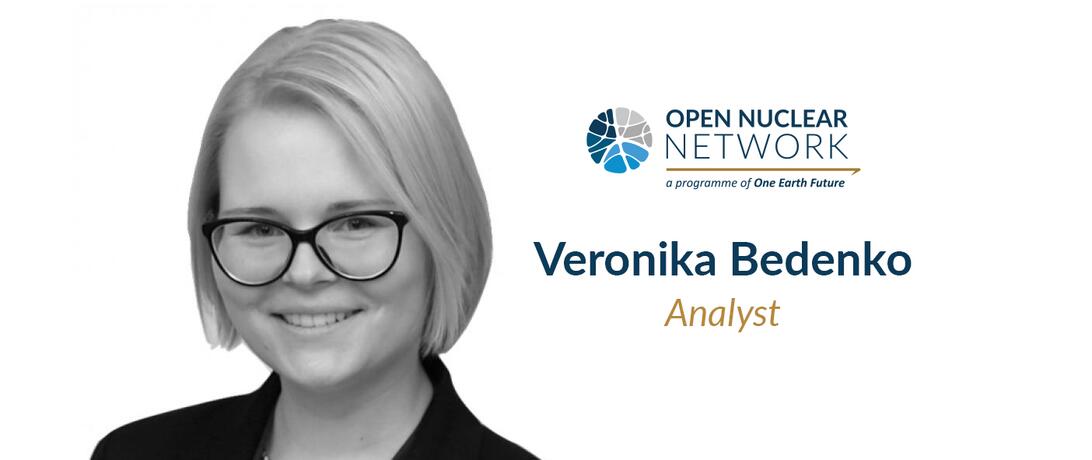
My semi-scientific background is very helpful in understanding and analysing the technical developments of North Korea's nuclear program and I also bring an understanding of the global non-proliferation context.
Tell me about yourself. Your background.
I was born in the Urals region of Russia in a tiny town called Zarechny, which was built to serve the Beloyarsk Nuclear Power Plant. Having grown up near a nuclear power plant, from an early age I faced all kinds of prejudices related to nuclear power. To no surprise, I decided to pursue a professional career related to nuclear.
I received my bachelor's degree in Moscow from a national research nuclear university MEPhI (Moscow Engineering and Physics Institute) where I majored in International Scientific Cooperation. It was a new science diplomacy program aimed at preparing specialists that would serve as a bridge between scientific and diplomatic communities.
As a logical continuation of my studies, I enrolled into a dual Master's degree in Nuclear Policy and Non-proliferation of Weapons of Mass Destruction (WMD) at the Moscow State Institute of International Relations (MGIMO) in Russia and the Middlebury Institute of International Studies at Monterey (MIIS) in the United States, which I completed with honors in 2019.
How did you get engaged in the Open Source Intelligence field?
I first came about this field during my studies at MIIS. I took a class with my now-boss Melissa Hanham on geospatial tools and analysis, and more broadly on open source intelligence (OSINT). Later, I was able to use this knowledge for my Master's dissertation on floating nuclear power plants. Since it was still a relatively new and under-researched concept, and not many studies have been done on it before, I had to do my own research, collect data, and do analysis for this particular area, which was really exciting because I was able to use the knowledge that I gained during my studies and apply it to a real world research project.
What is your role at ONN?
As an analyst, my main task is collecting and processing data related to our subject matter. Together with my colleagues from the analyst team, we are currently focusing on the Korean Peninsula crises and the Democratic People's Republic of Korea (DPRK) in particular. I bring my expertise as a Russian national, with a deeper understanding of Russian political and cultural systems, and help the team to collect relevant information and better understand Russia's position in the conflict. My semi-scientific background is very helpful in understanding and analysing the technical developments of North Korea’s nuclear program and I also bring an understanding of the global non-proliferation context.
What does Open Source Intelligence mean to you?
The ability to make a difference as an independent researcher. Not being affiliated with any government, I can still produce high quality research using OSINT even without access to government level intelligence tools. It gives you more freedom, but also more responsibility.
Why is Open Source Intelligence important for the global community?
It is connected to my previous answer about research opportunities. It gives every single individual the tools to conduct their own independent research. The more diverse opinions and research results we have, the bigger the competition, and the better the quality of analysis will be. It helps us check our own biases, avoid mistakes and errors, and ultimately allows the global
Article Details
Published
Topic
Program
Content Type
News